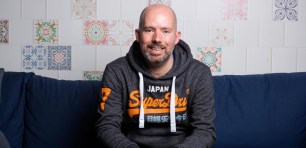
As a curious (naturally nosy) work futurist (a made-up job) at Atlassian (not a made-up company), diving into the Smart50 Workplaces judging gave an under-the-bonnet view of the ways SMEs are
building their own future of work in the here and now.
I was impressed by the breadth and diversity of the organisations and their distinct take on solving problems that many — big and small — places face in the world of work. There was brilliant experimentation on display by companies who are clearly keen to find authentic ways of getting work to… well… work for THEM, rather than Googling ‘best practice’ and implementing someone else’s way — probably penned by a self-appointed ‘thought leader’, and potentially written by an AI bot.
While the submissions came from a whole host of industry categories, three common themes emerged as focus areas for leaders and investment:
1. People: hiring, recognition and performance reviews, backed by values.
2. Flexibility: making work a part of life
3. Balancing mission orientation with autonomy: pulling in the same direction as soloists and as part of bigger, high-performing teams
The thing that struck me about these three themes is that they all link back to our biggest asset: humans.
Of course, this triad of challenges isn’t confined to the small and medium end of town. I’ve had conversations with leaders of ASX 200 organisations, major government departments and some bloody impressive and impactful global not-for-profits who are equally obsessed, and sometimes kept up at night, thinking about their own solutions to this tricky trio.
As the dust settles on the ‘new normal’ (and other post-lockdown patois), these challenges have become more acute. But the disruption of the pandemic has also given every organisation licence to rethink and question how they work, why they work, and if it’s all working like it should or could. For example, for a modern scale up maybe growth doesn’t equal getting BIGGER, but more about work getting BETTER.
How Atlassian does it
At Atlassian, we’ve spent considerable think and sprint time conceptualising and experimenting with our own set of solutions to these challenges.
1. People: Hiring, recognition and performance reviews, backed in values.
People have always been at the core of everything we do. We hire people, onboard them and recognise and reward them through a strong filter of our values. We have a 90-day onboarding pathway for new people. We give people meaningful work, ensuring there’s a strong connection to the work of every individual and Atlassian’s goals and mission.
2. Flexibility: making work a part of life
We went the whole hog on flexibility pre-pandemic with our Team Anywhere policy. This approach is built on a philosophy that we do our best work when we are given the freedom and tools to work
how and when we want, and that collaboration is enabled by technology and harnessed by people both playing to their respective strengths.
We’re not anti-office or pro-WFH because we want our people to work where they can do the best work of their life.
3. Balancing mission orientation with autonomy
This is one of the biggest challenges as any organisation grows, whether it’s from 20 people to 100, or from 600 to 10,000, which I’ve witnessed firsthand in my decade with Atlassian. You don’t scale
gracefully by accident. You do it on, and with, purpose. For us that’s been about Team Shaping — how you set teams up for success by building networks of teams, instead of siloes and functions for an org chart.
For every spoonful of autonomy, we need two spoonfuls of alignment. Forget the static hierarchy. Instead, build flow and competence systems oriented around customer value, with opportunities for reflecting, reshaping and reorientation built in by design.
While these three challenges are common to almost every business, the solutions are usually uncommon and custom. They need to truly be authentic and credible for your niche of customers, employees, and industry. And getting to them — speaking from firsthand experience — is rarely linear and straightforward.
It takes time, false starts, course corrections and a helluva lot of iteration to find what works, make it stick, and scale it along with your team’s growth.
That sense of experimentation — of test and learn mentality — is another common thread through this year’s Smart 50 Workplaces. In 2023 it’s refreshing to see so much smart thinking coming from 1-degree iterative improvements and experiments, instead of the wholesale crystal-ball gazing, ‘Total Transformation’ rhetoric of a few years ago.
We’ve all had enough disruptive, once-in-a-generation transformation for the next little while. The Smart companies are the ones taking that disruption as licence to experiment, find what works, and run with it.
Dominic Price is a work futurist at Atlassian and was a Smart50 Workplaces guest judge for the Hybrid Work, Flexibility and Work-Life Balance category.
For results and insights from the leading brands and category Top Performers, check out the Smart50 Workplaces Report: What are great employers doing differently in 2023?
Handpicked for you

“It’s not great”: CyRise closure leaves Australia without a cybersecurity startup accelerator



COMMENTS
SmartCompany is committed to hosting lively discussions. Help us keep the conversation useful, interesting and welcoming. We aim to publish comments quickly in the interest of promoting robust conversation, but we’re a small team and we deploy filters to protect against legal risk. Occasionally your comment may be held up while it is being reviewed, but we’re working as fast as we can to keep the conversation rolling.
The SmartCompany comment section is members-only content. Please subscribe to leave a comment.
The SmartCompany comment section is members-only content. Please login to leave a comment.